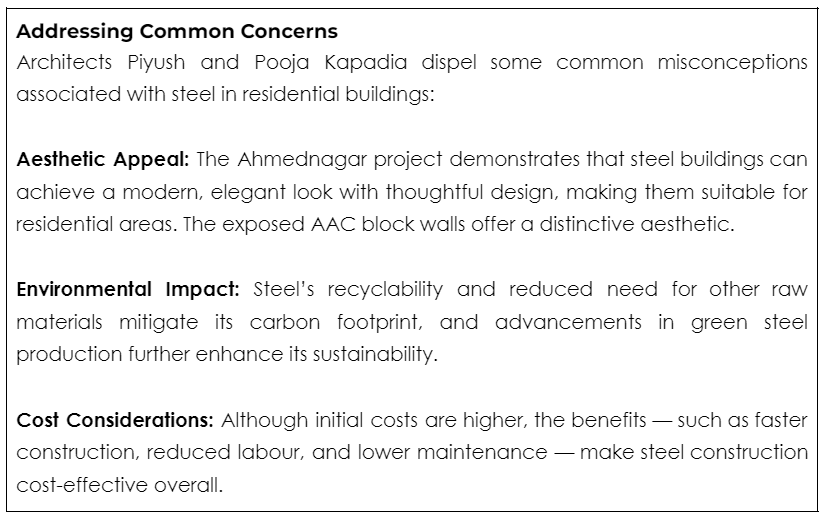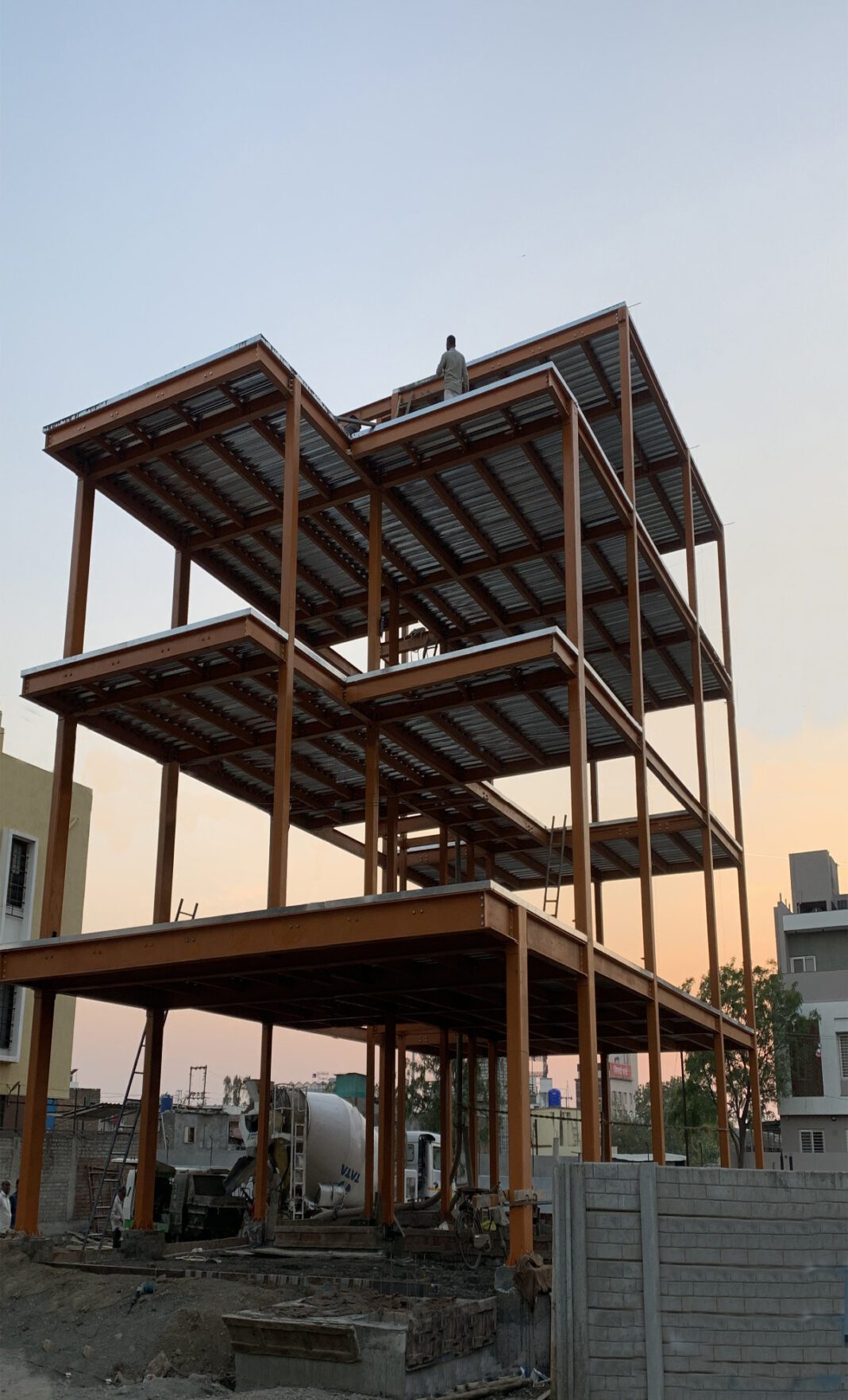In an era where sustainability is no longer a choice but a necessity, innovative construction methods are paving the way for a greener future. One such method is steel building technology, which has emerged as a beacon of efficiency, precision, and environmental stewardship. Our recent project in Ahmednagar, Maharashtra, stands as a testament to the transformative potential of this technology.
A Unique Approach
Cement construction not only increases temperature but also requires a lot of water, causes noise and air pollution, and takes a long time to complete. Avoiding all this, Chhatrapati Sambhajinagar (Aurangabad) based architects Pooja and Piyush Kapadia erected a four-storey environmental building in Ahmednagar using steel in just 15 days.
Narendra Bangadiya, a businessman from Ahmednagar, wanted to build a house on a 240 sq m plot in Karachiwala Nagar as soon as possible. The architect duo advised him to build an eco-friendly house instead of a conventional one, resulting in the first pre-engineered steel house in Ahmednagar.
A Case Study
For a small businessman’s family, they were granted full creative freedom to design and execute a residence that not only met their needs but also adhered to the highest standards of sustainability. The entire structure, spanning 5,500 sq ft, was erected using pre-engineered steel technology.
Spearheaded by architect Piyush Kapadia along with the structural designer V Sridhar Reddy, the design utilised Tata Steel hollow tubular sections and built-up sections from Jindal Steel.
The entire structure with four floor plates was erected on site in just 15 days. This rapid construction timeline was not at the expense of quality; rather, it showcased the precision and reliability of steel technology. More importantly, this approach resulted in savings of over 55 per cent in natural resources such as sand, aggregate, cement, and water along with human labour.
Conquering Hurdles
One of the primary challenges was ensuring that the house maintained a regular, residential appearance rather than an industrial look. While showcasing steel in its raw form may work for industrial structures and be aesthetically appealing in certain contexts, it was not suitable for a family residence. This was particularly true in a suburban housing society.
To address this challenge, cavity walls came up as a potential solution. The entire steel structure was sandwiched between Autoclaved Aerated Concrete (AAC) blocks on both sides, creating a cavity in between. This design not only insulated the structure from the harsh heat that Ahmednagar receives but also helped in achieving a more conventional residential look.
The architects chose to use Tata Structura in the project primarily because of its quality and the brand’s reputation for reliability. Tata Structura steel hollow sections offer a superior strength-to-weight ratio, which significantly enhanced the strength and stability of the structure. Furthermore, the clean lines and versatile sections of the steel enable a visually appealing and contemporary look that aligns with the project vision.
Efficient Process
According to the design, the beams and columns were fabricated at the fabrication unit and then erected on-site within two to three days using a crane and nut bolts. GI decking sheets were used for all four floor slabs, with steel reinforcement placed on top, and a concrete slab was cast using RMC in one day, completing the entire structure in just fifteen days. This technique not only expedited construction but also ensured the buildings could withstand earthquakes.
Using Tata Structura steel hollow sections provided several key insights. The significant time efficiency in construction was due to the ease of assembly and the lightweight nature of the material, which simplified transportation and handling. The precise dimensions and consistent quality of the sections streamlined the construction process. This efficiency minimised labour costs while ensuring the proper quality, strength, and durability of the steel.
 This project stands as a prime example of how steel buildings can meet the demands of modern construction and pave the way for a greener, more efficient future.
This project stands as a prime example of how steel buildings can meet the demands of modern construction and pave the way for a greener, more efficient future.
Quote
“Our Ahmednagar project shows that steel technology is not limited to large-scale industrial applications; it is equally effective for residential constructions. The combination of speed, precision, sustainability, and long-term cost savings makes steel an ideal choice for future projects. Additionally, eco-friendly materials will be used throughout, including cavity walls for the outer structure, which help maintain a comfortable indoor temperature year-round by keeping the house cool in summer and warm in winter.”
Piyush and Pooja Kapadia, Principal Architects, Pooja & Piyush Associates





